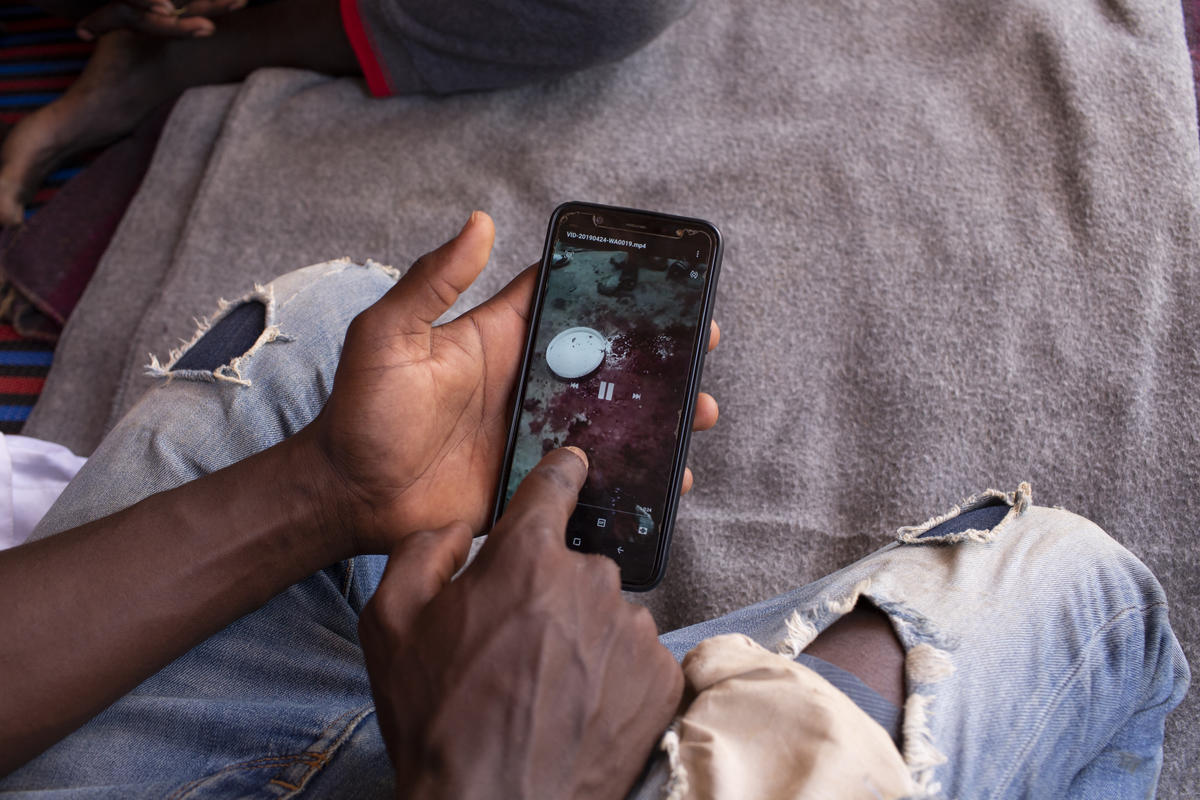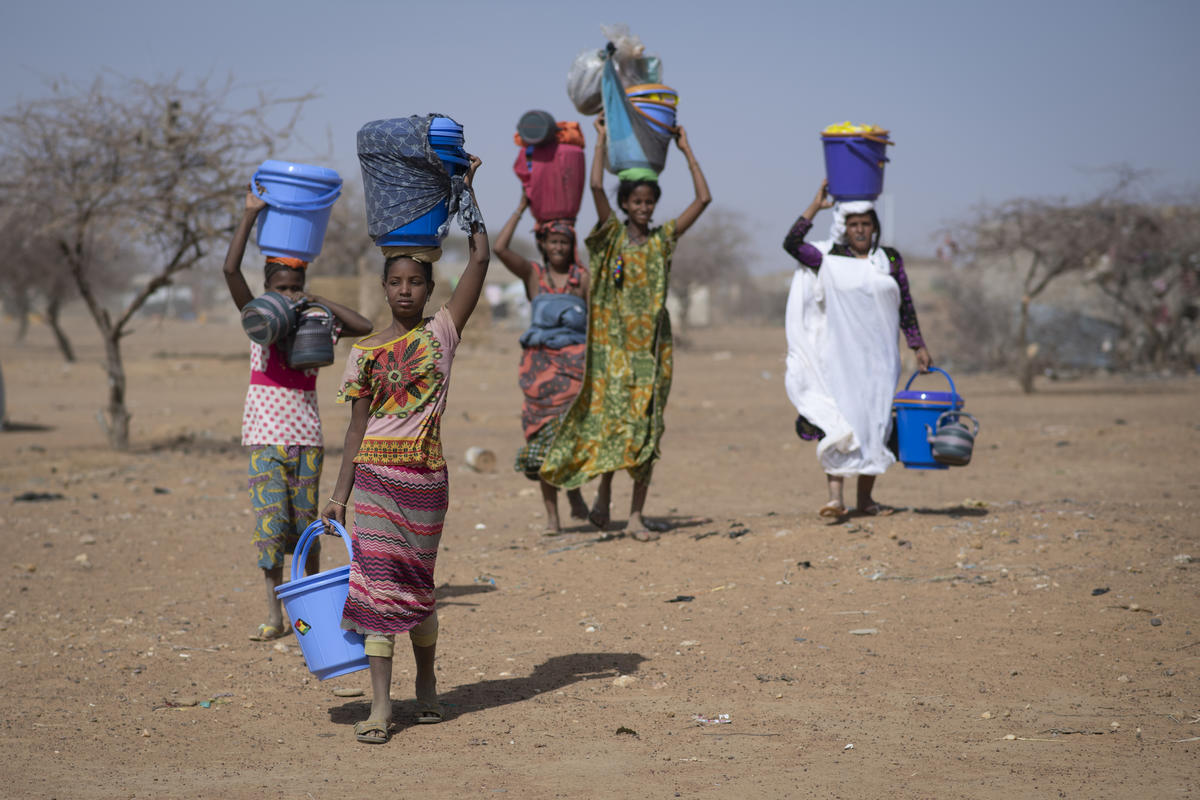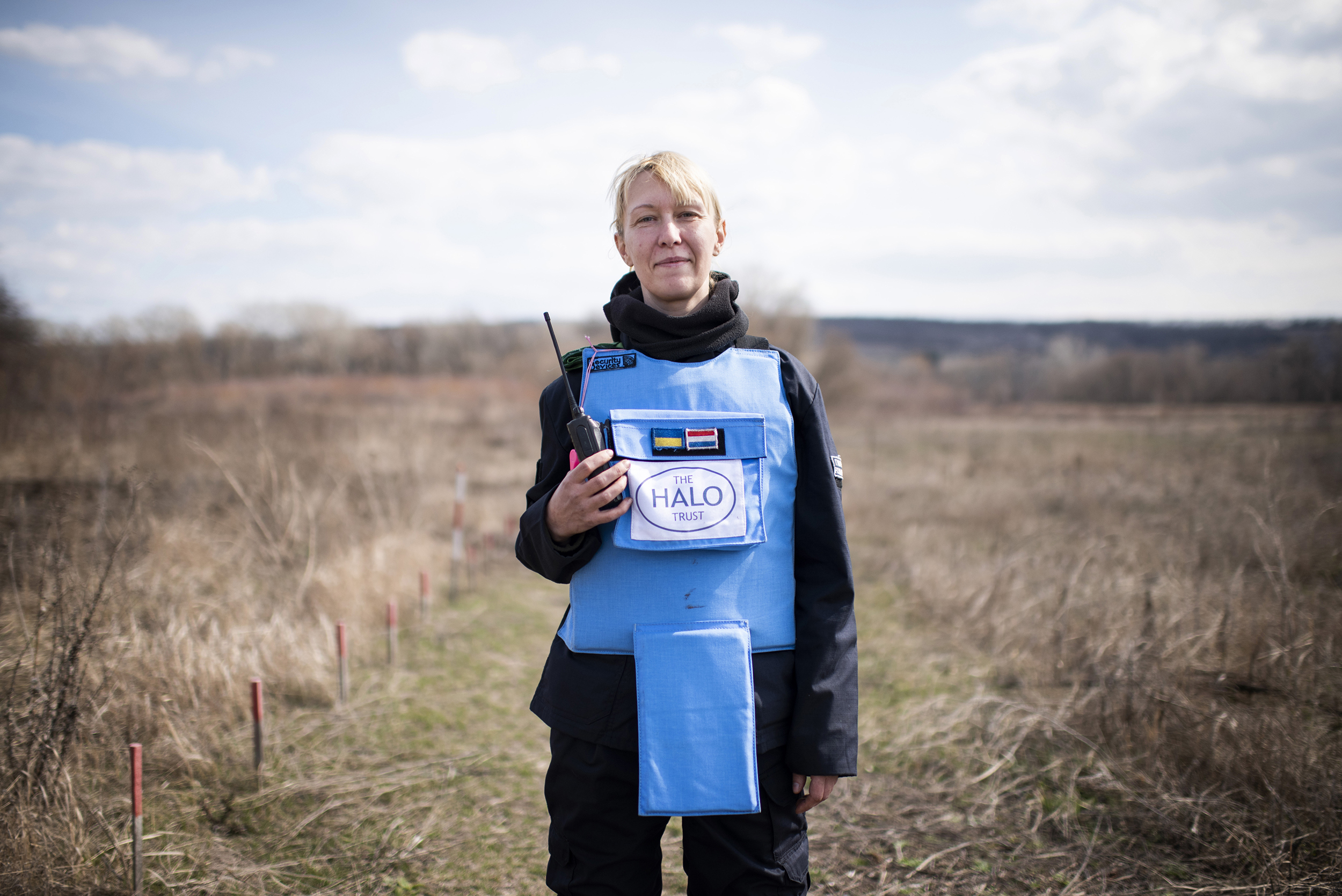Minefield survivors from Iraq receive warm welcome in Cyprus
Minefield survivors from Iraq receive warm welcome in Cyprus

LARNACA, Cyprus, March 16 (UNHCR) - Many refugees are prepared to risk arduous land journeys and dangerous sea crossings to escape persecution or conflict for the chance of a fresh start in a new country. But for two unwitting families from Iraq, their long bid for freedom nearly ended permanently in a minefield in the no-man's land dividing the Mediterranean island of Cyprus.
Though they survived the blasts last December, one man lost a leg and several people were injured. But their spirits and their hope in the future have been buoyed by the kindnesses they have received from caring individuals in the southern part of Cyprus, which became a magnet for irregular migrants and refugees after joining the European Union in 2004.
In the first incident, a family of five people were being led through a minefield by a people smuggler when disaster struck. The father, Said,* aged 52, stepped on a mine and lost part of a foot in the resultant explosion. His wife and two children were slightly injured.
The Iraqi asylum seeker had the presence of mind to cover the wound with a plastic bag and the smuggler helped them all across the border and took them to a hospital in the coastal city of Larnaca, before disappearing. Said's leg has been saved but he will need a lot of treatment before he can walk again. "The doctors told me it will take one year," he told recent visitors from UNHCR.
Two weeks after this incident, Ali* was crossing the border with his wife and infant son, when he triggered an anti-personnel mine. Their guide immediately took off, leaving them in no-man's land until Cyprus police collected the three and took them to hospital.
"When the mine went off, at first I thought that it was the police firing at us in order to make us stop," recalled Ali,* a 35-year-old Palestinian whose family fled their home in Baghdad last December. "It was only after a while that I started feeling the pain and seeing the stream of blood pouring from my leg," said the family breadwinner, whose foot had to be amputated. "It could have been worse.... I could be dead now," he whispered, while cradling his three-year-old boy.
For many people, such a traumatic blow after months of hardship, stress and uncertainty would have been the final straw. But these two families, and especially Said and Ali, have been boosted by the compassion they have received from the government - which is footing their medical expenses in line with its legal obligations towards asylum seekers - as well as hospital staff, UNHCR and decent, caring Cypriot citizens.
The latter include an Arabic-speaking Orthodox priest brought up in Jerusalem and a 65-year-old man from Limassol, who empathizes with the asylum seekers because his own father was an ethnic Greek refugee from Asia Minor who found refuge in Cyprus with his six children.
Father Panaretos explained that when he first visited Said in hospital, he was very weak and low in spirit. "Now, after the operation, he has regained his self-confidence and he has hope again," he said, adding: "What they need from us is to show them love. They need to feel that they are welcome, that they have someone to share their fears, to feel they are not alone."
Giannis, the pensioner from Limassol, said he had heard about Ali's case the day his mother - one of those six children brought to Cyprus by his grandpa - died. "I felt like caring for a person in need, which I thought of as a gift for the soul of my mother," he said.
The old man now often travels over from Limassol in the south-west to visit his new Palestinian friends in Larnaca. He wants to help and has opened a bank account for the family, depositing money each month to help them get by. And he thinks to the future, examining the possibility of vocational training for Ali, which would allow him to once more become a breadwinner.
But while people in Cyprus are helping them get on with their lives, the two families still look back occasionally to their once happy lives in Iraq. "We had a very good life once in Iraq: job, house, car, friends," noted Said, who decided to leave only when a car bomb killed his 16-year-old daughter. "I realized that Iraq was over for me and the rest of my family," he sobbed.
Ali and his family became victims of the growing animosity and threats towards the Palestinian community in Baghdad, which has shrunk over the past six years. Many are stuck in makeshift camps on Iraq's borders with Jordan and Syria.
The two men have similar dreams - a decent education for their children, good health and the chance to live in peace. The support they have received so far in Cyprus allows them to hope that they will be fully rehabilitated and integrated. UNHCR will continue to monitor their cases and promote their rights.
* Names changed for protection reasons
By Emilia Strovolidou in Larnaca, Cyprus









